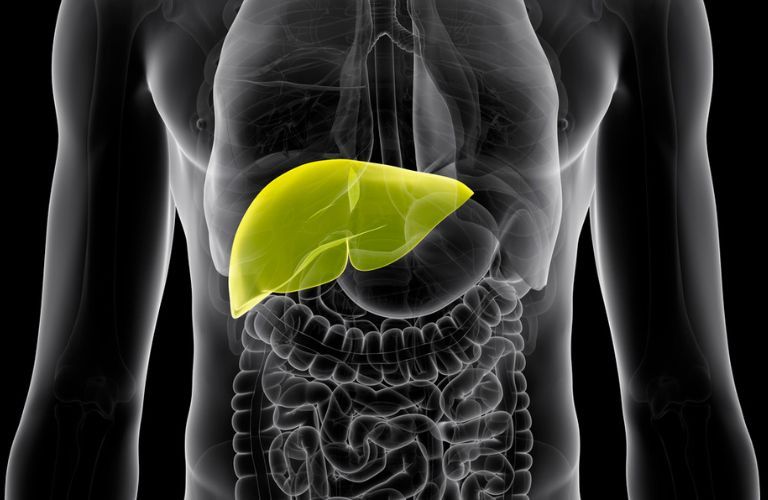The liver is a vital organ that plays a key role in several body functions, including metabolism, detoxification, and digestion. Liver diseases can therefore have a significant impact on our overall health. According to the World Health Organization (WHO), they are the 12th leading cause of death globally and the 5th leading cause in low-and middle-income countries. If you think you might be at risk for liver disease, you must talk to the best liver surgeon in Surat. In addition, they can diagnose and suggest the best option for liver surgery in Surat.
Different types of liver diseases
The following are the different types of liver diseases with various causes.
- Viral Infection: Certain viral infections affecting your liver condition are hepatitis viruses, including Hepatitis A, B and C.
- Complex Immune System: An autoimmune liver disease may occur when your immunity system mistakenly attacks your liver, causing primary biliary cholangitis and autoimmune hepatitis.
- Inherited diseases: There are multiple liver diseases that you inherit or can occur due to genetic conditions. It includes Wilson disease and hemochromatosis.
- Cancer: A tumor may occur in your liver due to an uncontrolled multiplication of cancer cells in the liver. These tumors may be benign (noncancerous) or malignant (liver cancer).
- Consuming toxins: Alcoholic fatty liver disease results from consumption of too much alcohol. Nonalcoholic fatty liver disease (NAFLD) results from consuming too much fat.
What are the symptoms of liver disease?
The following are the symptoms of liver disease:
- Jaundice
- Abdominal pain and swelling
- Itchy skin
- Dark urine color
- Pale stool color
- Chronic fatigue
- Nausea or vomiting
- Loss of appetite
If you have liver disease, it’s important to know that the symptoms of jaundice and weight loss may be the first signs of liver damage.
According to the liver specialist in Surat, fatigue is a common symptom among people with cirrhosis or other types of chronic liver disease. Jaundice is typically characterized by yellowing of your skin and eyes due to a buildup of bilirubin in your body. It can cause problems with vision and increase blood clotting time, leading to an increased risk of heart attack or stroke.
Watch the video on Liver Disease & Liver Abscess
What are the complications of liver disease?
Liver disease can have serious complications, including:
- Liver failure: When your liver is unable to perform its functions and causes symptoms such as jaundice (yellowing of the skin), fatigue, and weight loss. It may also lead to anemia or bleeding into the skin or joints.
- Cirrhosis: here scar tissue develops in your liver, leading to decreased ability of liver to function as it replaces the healthy liver tissue. It might also lead to functional failure.
Several serious complications can also develop if you have alcohol-related liver disease (ARLD). Some of them are as follows.
- Portal hypertension and varices: Portal hypertension is a common complication of cirrhosis. It occurs when the blood pressure inside your liver has risen to a potentially serious level.
- Ascites: A person with portal hypertension may also develop fluid build-up in their abdomen and around the intestines. This fluid is known as ascites. And it may lead you to suffer from infection in the fluid.
Treatment of Liver Diseases
Treatment for liver disease is determined by the type of disease and how far it has progressed. Treatment options include:
Medications: Some types of liver disease are treated with medication by healthcare providers. You may be prescribed medication to treat viral infections such as hepatitis or inherited conditions such as Wilson disease.
Changes in lifestyle: Can help you manage certain types of liver disease. Avoiding alcohol, limiting fat and calories, and increasing fibre intake can all help if you have fatty liver disease. Abstinence from alcohol can help to improve alcohol-related liver disease.
Liver transplant: When liver disease progresses to liver failure, a liver transplant may be the best option for treatment. A liver transplant replaces your diseased liver with a healthy liver.
For the best possible outcomes, seek out an experienced surgeon who specializes in Esophagus Surgery.
Do not limit if you find any of the symptoms or signs related to your liver disease. If you are diagnosed with any of these symptoms, there are ways to treat the problem in the liver as soon as it gets detected.
For treatment or to book an appointment contact us on: 0261 280 0000
FAQ:
What are the five symptoms of liver disease?
The five symptoms of liver disease include abdominal pain, jaundice, weight loss, dark urine, and yellowing of the skin and eyes.
Can the liver regenerate?
You may have heard that the liver can regenerate. It is true, but it’s not how you think. The liver regenerates to some extent, and even if there are complications, it will heal itself over time. However, there are limits on how much a person can regrow their liver.
What are the warning signs of liver disease?
The most common warning signs of liver disease include Fatigue (tiredness), Loss of appetite, inability to keep food down, nausea, vomiting, abdominal pain, and Jaundice (yellowing of skin and whites of eyes) or dark urine.
What are the common liver diseases?
Hepatitis: This is a viral infection that can lead to liver damage. It’s usually spread by contact with blood or body fluids, such as through sexual activity or sharing needles with someone with hepatitis C.
Cirrhosis: The buildup of fatty deposits in the liver causes cirrhosis, which gradually destroys its function over time. The condition can be fatal if left untreated or if it progresses into hepatic encephalopathy (HE).

